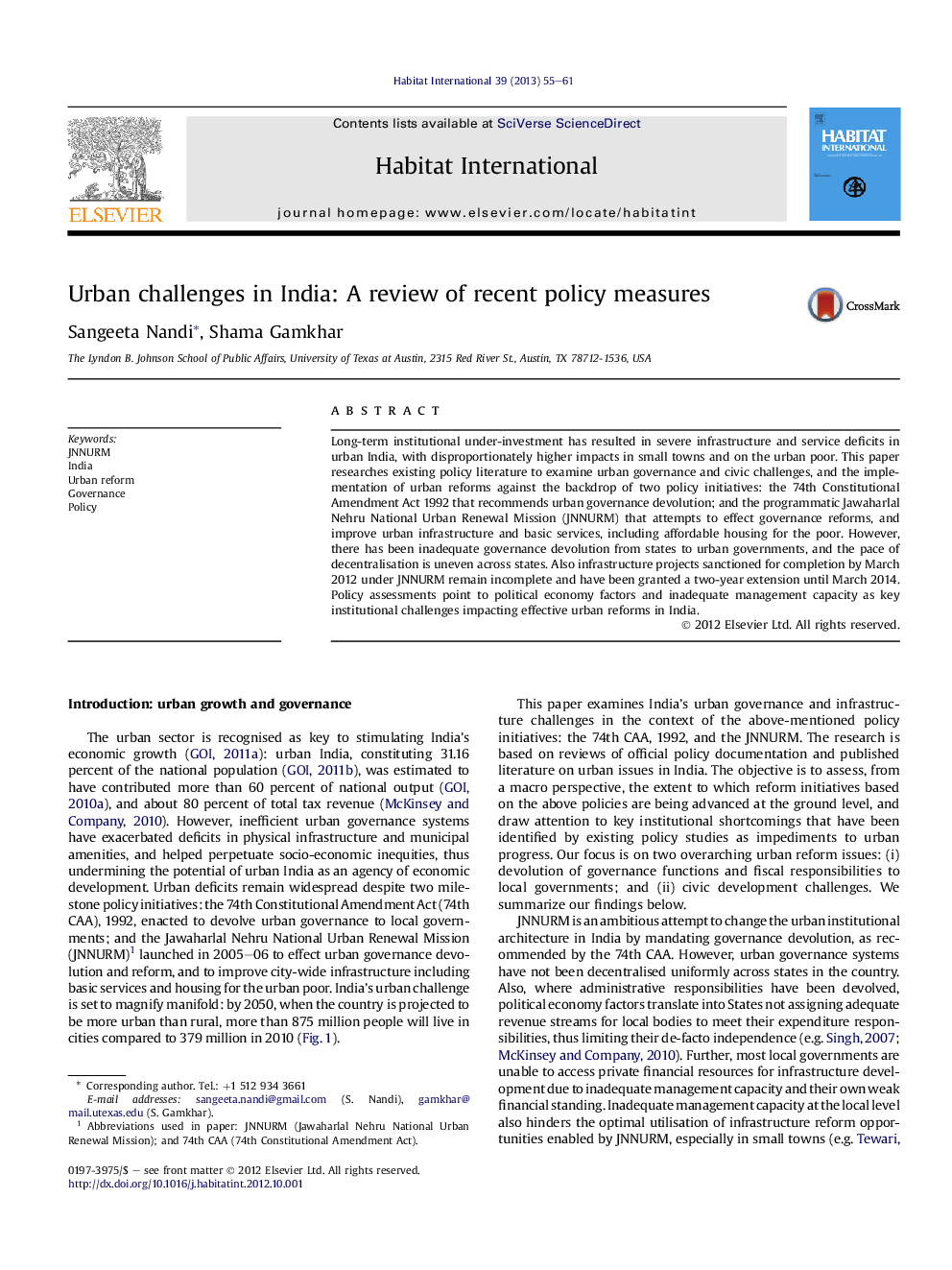| Article ID | Journal | Published Year | Pages | File Type |
|---|---|---|---|---|
| 1048223 | Habitat International | 2013 | 7 Pages |
Long-term institutional under-investment has resulted in severe infrastructure and service deficits in urban India, with disproportionately higher impacts in small towns and on the urban poor. This paper researches existing policy literature to examine urban governance and civic challenges, and the implementation of urban reforms against the backdrop of two policy initiatives: the 74th Constitutional Amendment Act 1992 that recommends urban governance devolution; and the programmatic Jawaharlal Nehru National Urban Renewal Mission (JNNURM) that attempts to effect governance reforms, and improve urban infrastructure and basic services, including affordable housing for the poor. However, there has been inadequate governance devolution from states to urban governments, and the pace of decentralisation is uneven across states. Also infrastructure projects sanctioned for completion by March 2012 under JNNURM remain incomplete and have been granted a two-year extension until March 2014. Policy assessments point to political economy factors and inadequate management capacity as key institutional challenges impacting effective urban reforms in India.
► Institutional inadequacies are manifest in governance and civic deficits across urban India. ► Current urban policy mandates governance devolution and reforms, and supports civic projects. ► Governance reforms and devolution to urban governments have been slow and uneven across states. ► Infrastructure and services projects under the reform agenda have fallen short of their milestones. ► Political economy factors and inadequate capacity impact urban policy implementation.
